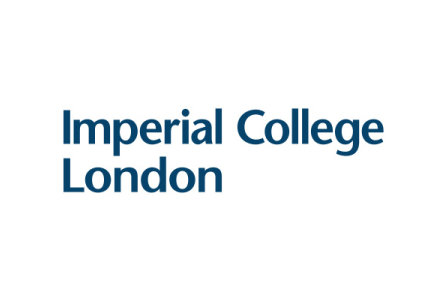Imperial College London: Imperial materials scientist wins L’Oréal-UNESCO Women in Science fellowship
Three Imperial scientists have been recognised in the 2022 L’Oréal-UNESCO Women in Science fellowships for engineering and life sciences.
Dr Martina Cihova won the Engineering category, and Imperial’s Dr Elena De Vita and Dr Talia Shmool were nominated for Life Sciences and Engineering.
I am very grateful to be provided with the opportunity to become a fellow in this incredible network and bring my project idea to life.
Dr Martina Cihova
Winner, Engineering category
The L’Oréal-UNESCO For Women In Science programme Rising Talent fellowships recognise exceptional early career women scientists in the UK and Ireland in the categories of Engineering, Life Sciences, Mathematics and Computer Science and Physical Sciences.
The awards were given at a ceremony at the House of Commons in May 2022. Both the highly commended candidates for the Engineering category were from Imperial – Dr Cihova and Dr Shmool. Dr De Vita was a highly commended candidate for the Life Sciences category.
The programme, a partnership between L’Oréal UK & Ireland, the UK National Commission for UNESCO and the Irish National Commission for UNESCO, with the support of the Royal Society, offers grants to promote, enhance and encourage the contribution of women pursuing research careers in the UK or Ireland.
Thierry Cheval, L’Oréal UK and Ireland, Managing Director said: “The 2022 Rising Talents are working on some of the biggest challenges that the world faces today including environmental and health challenges where their research advances could benefit us all. We are proud to be championing another group of exceptional For Women in Science Fellows.”
The winner
Dr Martina Cihova (winner: Engineering category)
Dr Martina CihovaDr Cihova is a Research Associate in the Department of Materials and Postdoctoral Fellow of the Swiss National Science Foundation.
She studies the dynamic interplay between biology and medical materials, aiming at improving functionality and durability of these materials. In her research, she combines the disciplines of bioengineering and materials science and takes inspiration from her fascination with advanced microscopy. Her work pushes the limits in engineering and understanding material-cell interfaces at subcellular scales – work that helps us understand the reactivity and stability of medical materials in contact with biological matter.
Working with the Stevens Group, she aims to improve the way medical equipment interacts with human tissue and aims to maximise the equipment’s performance and ultimately improve patient care.
She said: “It is a great honour to be recognised by this award among this group of outstanding women scientists. The L’Oréal and UNESCO UK for Women in Science programme is a unique initiative in empowering the position of women in science. I am very grateful to be provided with the opportunity to become a fellow in this incredible network and bring my project idea to life.”
Highly commended candidates
Dr Elena De Vita (Candidate: Life Sciences category)
Dr Elena De VitaDr De Vita is a Marie Sk?odowska-Curie Fellow and a Worldwide Cancer Research Co-Investigator in the Department of Chemistry. She works to develop covalent inhibitors of enzymes like GTPases for biomedical applications in cancer treatments.
Her proposal aims to develop innovative dual-functionality molecules that can rewire a specific cellular process, such as protein phosphorylation, to alter cellular signalling.
The work can lead to targeting cancer cells with increased precision, to improve the effectiveness of treatment while reducing its side effects.
Dr De Vita said: “I am overjoyed to have been selected alongside this pool of incredible scientists. The L’Oréal-UNESCO programme is a “one-of-a-kind” platform to promote the work of women in STEM and this nomination will significantly accelerate my research towards next-generation cancer therapeutics.”
Dr Talia Shmool (Candidate: Engineering category)
Dr Talia Shmool Dr Shmool is a Research Associate in the Department of Chemical Engineering.
As part of Imperial’s Future Vaccine Manufacturing Research Hub, Dr Shmool leads the research on the use of biocompatible ionic liquids for pharmaceutical applications, such as drugs and vaccines.
Dr Shmool developed a now-patented technology for creating pharmaceutical formulations of enhanced thermal and structural stability. This technology enables room-temperature storage of therapeutics for months, with immediate benefits for pharmaceutical distribution in developing countries.
In parallel Dr Shmool has been developing experimental and theoretical approaches for studying the molecular basis of protein misfolding, contributing to research in neurodegenerative diseases. With the support of the Dame Julia Higgins Engineering Collaborative award, Dr Shmool has also been developing new strategies to enhance brain drug delivery.
She began her career at the University of Cambridge, using terahertz-time domain spectroscopy to increase our understanding of the fundamental properties of amorphous macromolecular solid-state systems.
Dr Shmool said: “By creating unique and enhanced drug delivery vehicles, I aim to strengthen the bridge between academia and industry and revive lost therapeutic candidates. I am pleased to have my work recognised with this nomination from the L’Oréal-UNESCO Women in Science Fellowship.”

